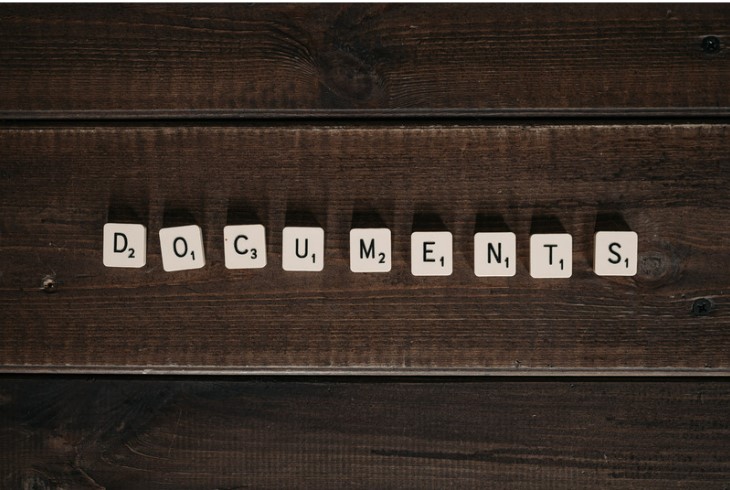Small business payroll basics: What to know and 4 easy steps to help you get it right every time
When someone starts a small business, they do so with aspirations of growth, maybe disrupting the marketplace, creating a legacy to pass down to future generations — not spending hours figuring out payroll.
Your employees' paychecks are their lifeblood and couldn't be more important to your business. There are many pitfalls you may encounter if you process payroll incorrectly, including processing payroll late (or not at all), maintaining inadequate payroll records, and most importantly, being on the wrong side of the IRS. You need to make sure those checks arrive on time and are exactly right, every time.
That's not as easy as it sounds. Paying employees correctly and following proper tax laws can be incredibly time-consuming and confusing. Processing proper wages, factoring proper deductions and withholdings, and making sure the IRS gets its cut are all concepts that are important to get right, and easy to get wrong. Not to mention, spending time on this takes away valuable time from running and growing your business.
At Benetech, we're here to help. Here’s a short primer on small business payroll.
The basics of small business payroll
Payroll doesn’t just start and end on payday. There are a number of key steps and forms to complete before, during, and after cutting checks to ensure your small business is following the correct procedures. Payroll prep
First and foremost, a business must decide how it will process payroll. Finding an HRIS or payroll system that properly fits your needs and keeps everything in order is paramount for staying on top of the process (more on that later). Additionally, it's a good idea to establish a payroll bank account that is separate from any other business accounts you may have.
On the employee side, collecting the necessary forms during hiring and onboarding is crucial for making payday go by smoothly. These documents include:
Determine employees’ pay, withholdings, and deductions
With every paycheck, of course, comes an employee’s earnings for that designated pay period. However, it’s not as simple as handing out a check. There are a number of deductions and withholdings to be aware of. On each individual paycheck, your business needs to be taking out the proper amount of payroll taxes. These payroll taxes include:
In addition to these mandatory deductions, any other employee voluntary deductions must be taken out as well. These include things like retirement plan contributions, health insurance premiums, life insurance premiums, and any other programs or benefits you may have as a business. Payment
Which time-tracking system will you use? How often will your employees be paid? Weekly, bi-weekly, monthly, etc? Remember, if the scheduled payday falls on a holiday, you'll want to ensure ACHs will be processed smoothly and on time to avoid any hiccups. You'll want to make sure you review the payroll to ensure everything is correct and accurate in the pay statement (holiday pay, bonuses, etc.).
You'll also want to make sure you build in time to address any issues such as delays in direct deposits, inaccuracies in state and federal withholdings, and double-check that employee information is entered correctly, as any discrepancies in the data you submit can cost you. Payroll mistakes can result in fines and violations that can harm your business.
Next comes the most self-explanatory step: payday. This can involve cutting a physical check to employees or depositing directly into their account.
Post-payment
So you've finished payroll for the week, bi-week, month, etc. Now what?
There are two main factors to consider before directly shifting focus to the next impending pay period. The first consideration is sending in payroll taxes. This is all of the money that was withheld on your employees' checks, as well as any additional Medicare or Social Security taxes that your business faces. They can be submitted in a variety of methods to the IRS, but the most common is to do so on a monthly or bi-weekly basis. Next, it’s a smart business practice to stay updated with payroll numbers and to maintain current and accurate employee forms. Keeping track of accumulated employee pay for the year and asking employees to update W-4 and other tax forms yearly will help your business stay ahead of the curve, and help you quickly identify and address any potential issues. Benetech can help
Ask yourself a few things about your current payroll system:
Is it robust enough to effectively manage the entire payroll process for my organization?
Does it offer a wide-enough range of reporting options to allow me to efficiently oversee and manage my payroll?
Can the functionality expand as I grow my business? Am I spending too much time on payroll and not enough time growing my business? If you're not feeling good about the answers to any of those questions, we can help.
Our comprehensive solution incorporates and streamlines all aspects of payment processing into the Benetech HRIS so you can spend your time on other things. Some of the payroll features include:
And about all those payroll forms an employee fills out on their first day? That's automated too.
Small business owners have an incredible amount of items on their to-do lists. Spending hours on payroll shouldn’t be one of them. Get in touch today to talk about how Benetech can help you streamline your payroll system, so you can focus your aim higher on more important things...your business, and your people.




